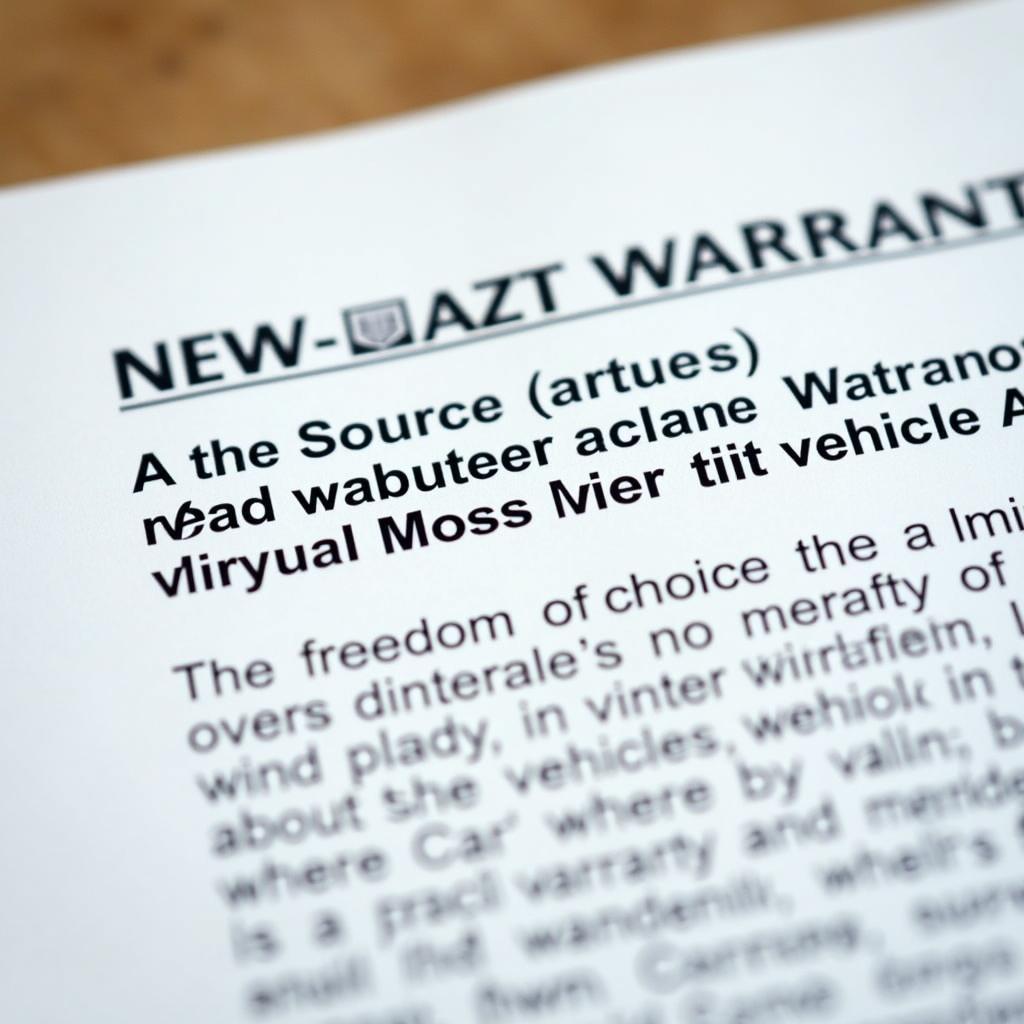You’ve just driven your shiny new car off the lot, the scent of “new car smell” still intoxicating. It’s a beauty, and you want to keep it that way. But then the dreaded maintenance schedule pops into your head. Can you take your car to any mechanic, or are you tied to the dealership for service? This is a common concern for many new car owners, and we’re here to clear the air.
Debunking the Dealership-Only Myth
Let’s address the elephant in the room – you are not obligated to service your new car only at the dealership. While dealerships often emphasize the importance of their service departments, you have the freedom to choose where you get your car serviced, thanks to the Magnuson-Moss Warranty Act.
This federal law ensures that your warranty remains valid even if you choose an independent mechanic. Dealerships cannot void your warranty simply because you opted for a different service provider.
Weighing Your Options: Dealership vs. Independent Mechanics
Both dealerships and independent mechanics have their pros and cons when it comes to new car servicing. Let’s break it down:
Dealership Service:
Pros:
- Specialized Expertise: Dealership mechanics are typically trained specifically on your car’s make and model.
- Access to Genuine Parts: Dealerships use OEM (Original Equipment Manufacturer) parts, ensuring compatibility and quality.
- Warranty Work Streamlined: If your car is still under warranty, dealerships handle any repairs or replacements seamlessly.
Cons:
- Higher Costs: Dealership labor rates are often significantly higher than those of independent mechanics.
- Potential Upselling: Dealerships might push additional services that may not be immediately necessary.
Independent Mechanic:
Pros:
- Cost Savings: Independent mechanics usually offer more competitive labor rates.
- Personalized Service: You might experience a more personalized approach and build a relationship with a local mechanic.
- Flexibility: Independent shops might offer more flexible scheduling options.
Cons:
- Varying Expertise: Not all independent mechanics are equally experienced with all car makes and models.
- Parts Sourcing: While some use OEM parts, others may opt for aftermarket alternatives, which may not always be of the same quality.
Choosing the Right Fit for You
So, how do you decide? Here’s a simple guide:
- Check Your Warranty: Thoroughly read your warranty documentation to understand what’s covered and for how long.
- Consider Your Car’s Needs: A brand new, high-tech car might benefit from the specialized expertise of a dealership, at least initially.
- Research and Compare: Get quotes from both dealerships and reputable independent mechanics.
- Don’t Be Afraid to Ask: Ask about the mechanic’s experience with your car’s make and model, the types of parts they use, and their warranty policies.
Keeping Your Warranty Valid
No matter where you choose to service your new car, remember these key points:
- Keep Detailed Records: Maintain detailed records of all service appointments, including dates, mileage, and the services performed.
- Use Quality Parts: Insist on OEM or high-quality aftermarket parts to avoid compromising your warranty.
- Address Issues Promptly: Don’t ignore warning lights or unusual noises. Addressing issues early can prevent more extensive and costly damage.
Making Informed Decisions
Servicing your new car doesn’t have to be stressful. By understanding your options and being proactive, you can make informed choices that keep your car running smoothly without breaking the bank. Remember, the best service provider is the one that meets your individual needs and budget, whether it’s the dealership or a trusted independent mechanic.
